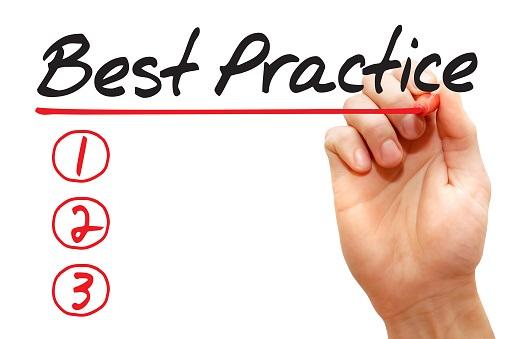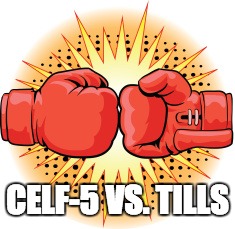
Knowledge Acquisition and Transformation (KAT) framework, developed by Wijekumar and colleagues, involves a systematic approach to teaching students how to comprehend and use text structures to enhance their reading and writing skills. Below is quick review regarding how SLPs can use it in therapy with reading and writing impaired learners.
1. Understanding Text Structures
Teach the Students to Identify the Overall Top-Level Structure of a Text:
o Focus on the four primary text structures: comparison, cause-effect, problem-solution, and cause-problem-solution.
o Use signaling words or discourse markers to aid in identifying the top-level structure.
o Apply these steps to all genres of text, such as expository, narrative, biography, and/or poetry.
2. Introducing Text Structures
Begin by explicitly teaching each text structure. Use the following steps:
- Define and Explain: Start with a clear definition and explanation of each text structure.
- Provide Examples: Show students examples of texts that use each structure. Highlight and discuss the organizational patterns and signal words.
3. Teaching the Identification of Text Structures

- Reading Passages: Provide students with reading passages and ask them to identify the text structures used.
- Use Top-Level Structures to Answer Multiple-Choice Questions:
o Apply the understanding of text structures to answer questions about the main idea or summary of the text.
- Answering Inference Questions:
o Integrate the top-level structure, main idea, and prior knowledge to answer inference questions.
- Developing a Summary:
o Add key details to each part of the main idea statement.
o Focus on the overall text structure and main idea to guide the selection of important details for the summary.
- Using Graphic Organizers: Use graphic organizers to visually represent each text structure. For example, a cause-and-effect organizer might have boxes connected by arrows to show causal relationships.
o Signal Words: Teach students to recognize signal words associated with each text structure. For example, words like “because,” “since,” and “therefore” often indicate a cause-and-effect structure.
o Use a Consistent Sentence Stem:
o Based on the overall structure of the text, use sentence stems to generate the main idea statement.
o Example sentence stem: “The problem is ___. The solution(s) is/are ___.”
4. Practicing with Text Structures
- Guided Practice: Engage students in guided practice activities where they identify and use text structures in reading and writing.
- Collaborative Learning: Use group activities where students work together to identify and discuss text structures in various texts.
5. Applying Text Structures in Writing
- Writing Assignments: Assign writing tasks that require students to use specific text structures. For example, ask students to write a cause-and-effect essay on a given topic.
- Peer Review: Implement peer review sessions where students provide feedback on the use of text structures in each other’s writing.
Example of an Implementation Plan
Week 1-2: Introduction to Text Structures
- Define and explain each text structure.
- Provide examples and use graphic organizers.
Week 3-4: Identification Practice
- Use reading passages for identification practice.
- Focus on recognizing signal words.
Week 5-6: Writing with Text Structures
- Assign writing tasks using specific text structures.
- Conduct peer review sessions.
By following these steps, educators as well as SLPs can effectively implement the Knowledge Acquisition and Transformation (KAT) framework using text structures, thereby enhancing students’ reading comprehension and writing skills.
Select Research Findings
· Studies have shown significant improvement in reading comprehension for students using the KAT framework.
· The approach has been effective for 4th and 5th -grade students, including those at or below the 25th percentile in reading comprehension.
· The KAT framework has also shown success in improving comprehension for Spanish-speaking English learners and in content areas beyond language arts, such as science.
Conclusion
Incorporating text structure-based reading comprehension instruction into both group as well as individual therapy sessions can significantly improve students’ comprehension skills.
Useful Resources:
Select References:
- Hudson, A.K., Owens, J.K., Moore, K.A., Lambright, K. & Wijekumar, K. (2021). “What is the Main Idea?”: Using Text Structure as a Framework for Accelerating Strategic Comprehension of Text. Reading Teacher, 75(1), 113.
- Meyer, B.J.F., & Wijekumar, K. (2018) Comparative Signaling Words Generated for Expository Texts by 4th – 8th Graders: Variations by Reading Comprehension Levels and Text Structure Strategy Intervention, Reading and Writing: An Interdisciplinary Journal, , 31,9: 1937-1968.
- Wijekumar, K., Meyer, B.J.F., Lei, P. (2012). Large-scale randomized controlled trial with 4th graders using intelligent tutoring of the structure strategy to improve nonfiction reading comprehension. Journal of Educational Technology Research and Development. 60, 987-1013.
- Wijekumar, K., Meyer, B. J. F., & Lei, P. (2017). Web-based text structure strategy instruction improves seventh graders’ content area reading comprehension. Journal of Educational Psychology, 109(6), 741-760.
- Wijekumar, K., Meyer, B.J.F., Lei, P-W, Hernandez, A., August, D. (2018). Improving content area reading comprehension of Spanish speaking English learners in Grades 4 and 5 using web-based text structure instruction. Read Writ (2018) 31:1969–1996.
- Wijekumar, K., Graham, S., Harris, K.R., Lei, P., Barkel, A., Aitken, A., Ray, A., & Houston, J. (2019). The roles of writing knowledge, motivation, strategic behaviors, and skills in predicting elementary students’ persuasive writing from source material. Reading & Writing: An Interdisciplinary Journal.
- Wijekumar, K., Beerwinkle, A., McKeown, D., Zhang, S., & Joshi, R. M. (2020). The “gist” of the reading comprehension problem in grades 4 and 5. Dyslexia: An International Journal of Research and Practice
- Wijekumar, K., Graham, S., Harris, K.R., Lei, P., Barkel, A., Aitken, A., Ray, A., & Houston, J. (2019). The roles of writing knowledge, motivation, strategic behaviors, and skills in predicting elementary students’ persuasive writing from source material. Reading & Writing: An Interdisciplinary Journal.
- Wijekumar, K., Hudson, A.K., Lambright, K.L., Owens, J.K., Binks-Cantrell, E., Beerwinkle, A.L., (2023). Knowledge Acquisition and Transformation (KAT) Using Text Structures. The Reading League Journal.



 There are many fun yet highly educational therapy activities we can do with our preschool and school-aged clients in the fall. One of my personal favorites is bingo. Boggles World, an online ESL teacher resource actually has a number of ready-made materials, flashcards, and worksheets that can be adapted for speech-language therapy purposes. For example, their
There are many fun yet highly educational therapy activities we can do with our preschool and school-aged clients in the fall. One of my personal favorites is bingo. Boggles World, an online ESL teacher resource actually has a number of ready-made materials, flashcards, and worksheets that can be adapted for speech-language therapy purposes. For example, their  It’s early August, and that means that the start of a new school year is just around the corner. It also means that many newly graduated clinical fellows (as well as SLPs switching their settings) will begin their exciting yet slightly terrifying new jobs working for various school systems around the country. Since I was recently interviewing clinical fellows myself in my setting (an outpatient school located in a psychiatric hospital, run by a university), I decided to write this post in order to assist new graduates, and setting-switching professionals by describing what knowledge and skills are desirable to possess when working in the schools.
It’s early August, and that means that the start of a new school year is just around the corner. It also means that many newly graduated clinical fellows (as well as SLPs switching their settings) will begin their exciting yet slightly terrifying new jobs working for various school systems around the country. Since I was recently interviewing clinical fellows myself in my setting (an outpatient school located in a psychiatric hospital, run by a university), I decided to write this post in order to assist new graduates, and setting-switching professionals by describing what knowledge and skills are desirable to possess when working in the schools.  Those of you familiar with my blog, know that a number of my posts take on a form of extended responses to posts and comments on social media which deal with certain questionable speech pathology trends and ongoing issues (e.g., controversial diagnostic labels, questionable recommendations, non-evidence based practices, etc.). So, today, I’d like to talk about sweeping general recommendations as pertaining to literacy interventions.
Those of you familiar with my blog, know that a number of my posts take on a form of extended responses to posts and comments on social media which deal with certain questionable speech pathology trends and ongoing issues (e.g., controversial diagnostic labels, questionable recommendations, non-evidence based practices, etc.). So, today, I’d like to talk about sweeping general recommendations as pertaining to literacy interventions.  On a daily basis I receive emails and messages from concerned parents and professionals, which read along these lines: “My child/student has been diagnosed with: dyslexia, ADHD, APD etc., s/he has been receiving speech, OT, vision, biofeedback, music therapies, etc. but nothing seems to be working.”
On a daily basis I receive emails and messages from concerned parents and professionals, which read along these lines: “My child/student has been diagnosed with: dyslexia, ADHD, APD etc., s/he has been receiving speech, OT, vision, biofeedback, music therapies, etc. but nothing seems to be working.”
 In my
In my